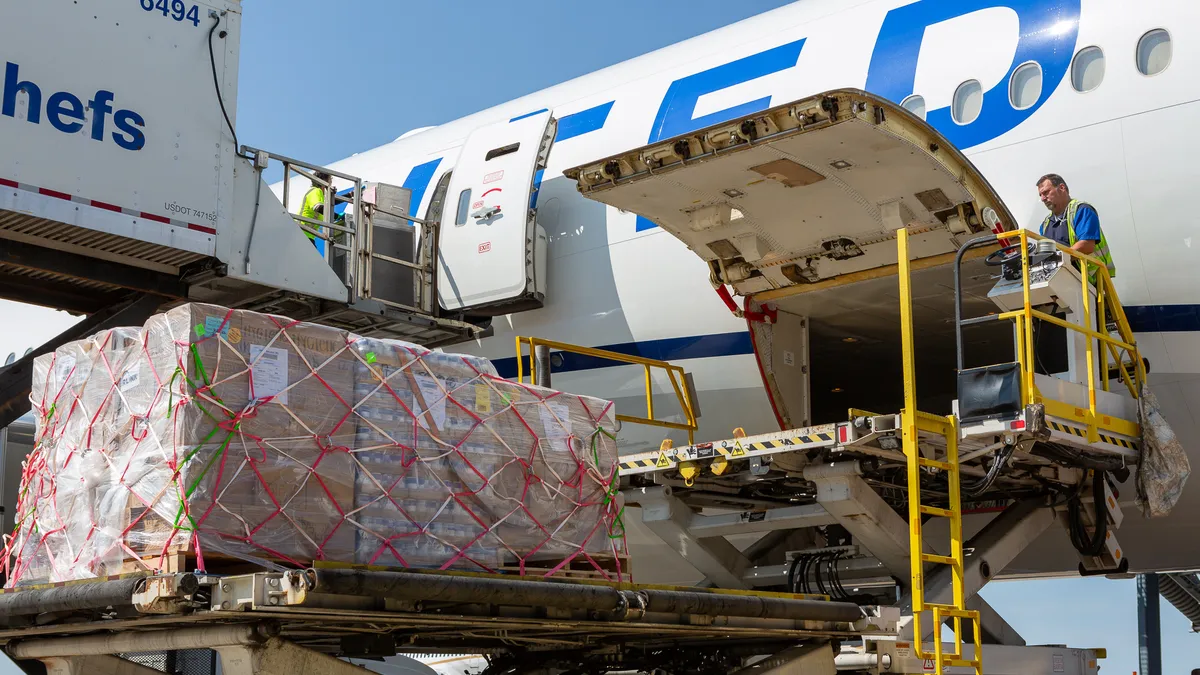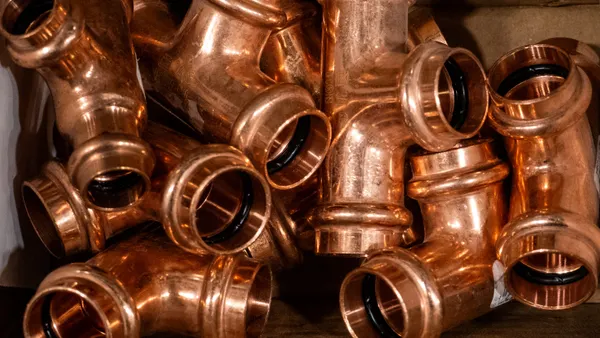Dive Brief:
- Alcoa CEO Roy Harvey expressed concern on a recent earnings call that U.S.-levied tariffs on Canadian aluminum will turn into quotas on aluminum imports, eventually rebounding to raise prices on aluminum dependent goods, from beer to soup to auto parts.
- "Tariffs have not solved the industry's challenges, which stemmed from highly subsidized smelting capacity in China that has resulted in surplus production. And quotas are also likely to disrupt the North American market and hurt aluminum consumers already paying more for their aluminum inputs than their global competitors," said Harvey.
- Alcoa produces aluminum sheeting in Canada, which it turns into cans in the U.S. Tariffs and potential quotas could have a crippling effect on the company's business. Harvey said the company paid $32 million in tariffs in the first quarter.
Dive Insight:
Reports began to surface last month that U.S. negotiators were pushing for a quota on imported steel and aluminum from Mexico and Canada. U.S. negotiators are reportedly looking for an alternative to the tariffs currently in place on these imported metals, since both U.S. neighbors insist the tariffs be lifted in order to move forward with the United States Mexico and Canada Agreement (USMCA).
Canadian negotiators argued quotas would lead to price fluctuations and scarcity and be even more disruptive to the market than tariffs.
Last week, Alcoa executives echoed that sentiment, forewarning the consequences of moving from tariffs to quotas.
"From our standpoint, tariffs are not having the desired impact and they are hurting the downstream industry ... Depending on the quota regime put into place, what you can see is the rush of metal coming in and then running up against the hard quota depending on what percentage of prior year's production is considered," said Harvey.
A quota, Harvey said, would eventually reduce the available supply of aluminum and cans in the U.S. and reshuffle global supply and demand in a way that favored the suppliers already undercutting American producers.
After Canadian and Mexican aluminum flood into the U.S. and the quotas are met, it will then be open season for Chinese imports and other players. Furthermore, the producers of aluminum products wouldn't necessarily all receive such a rush of supply equally or based on need, which could lead to a shortage of certain aluminum products, beverage cans for example, but not a shortage of aluminum itself, potentially artificially raising prices of common goods.
Knock-on effects for ports and freight carriers could also result if the flow of supply into the U.S. becomes more erratic.
"What we really need is a level playing field, where we can all compete, where we can all work to make our plants better and make the right products for the right customers and see an orderly business where that competition is really level and fair," said Harvey.













